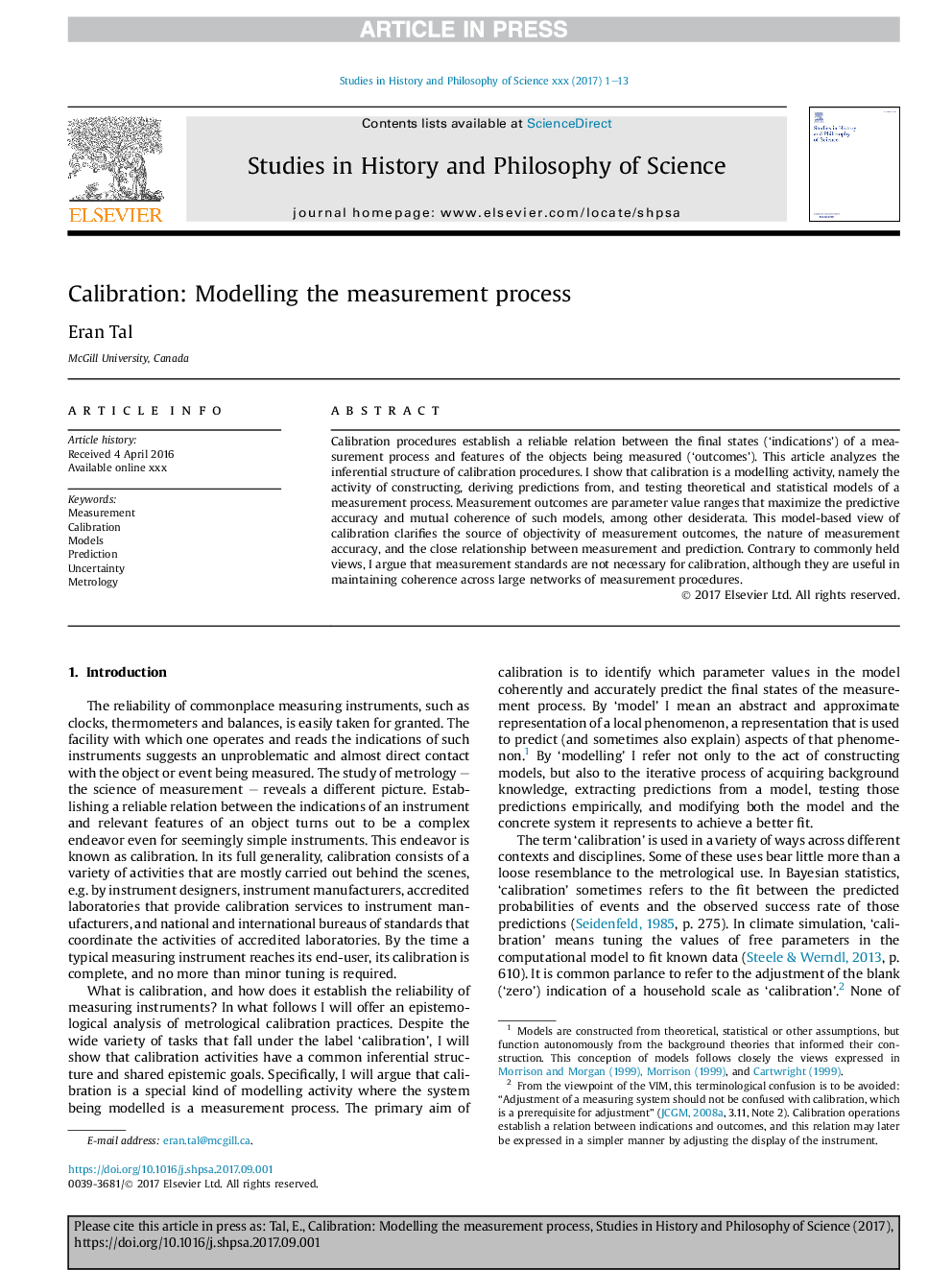| Article ID | Journal | Published Year | Pages | File Type |
|---|---|---|---|---|
| 7551597 | Studies in History and Philosophy of Science Part A | 2017 | 13 Pages |
Abstract
Calibration procedures establish a reliable relation between the final states ('indications') of a measurement process and features of the objects being measured ('outcomes'). This article analyzes the inferential structure of calibration procedures. I show that calibration is a modelling activity, namely the activity of constructing, deriving predictions from, and testing theoretical and statistical models of a measurement process. Measurement outcomes are parameter value ranges that maximize the predictive accuracy and mutual coherence of such models, among other desiderata. This model-based view of calibration clarifies the source of objectivity of measurement outcomes, the nature of measurement accuracy, and the close relationship between measurement and prediction. Contrary to commonly held views, I argue that measurement standards are not necessary for calibration, although they are useful in maintaining coherence across large networks of measurement procedures.
Related Topics
Social Sciences and Humanities
Arts and Humanities
History
Authors
Eran Tal,
